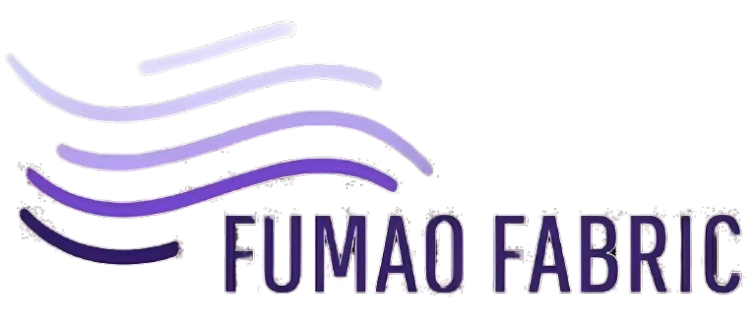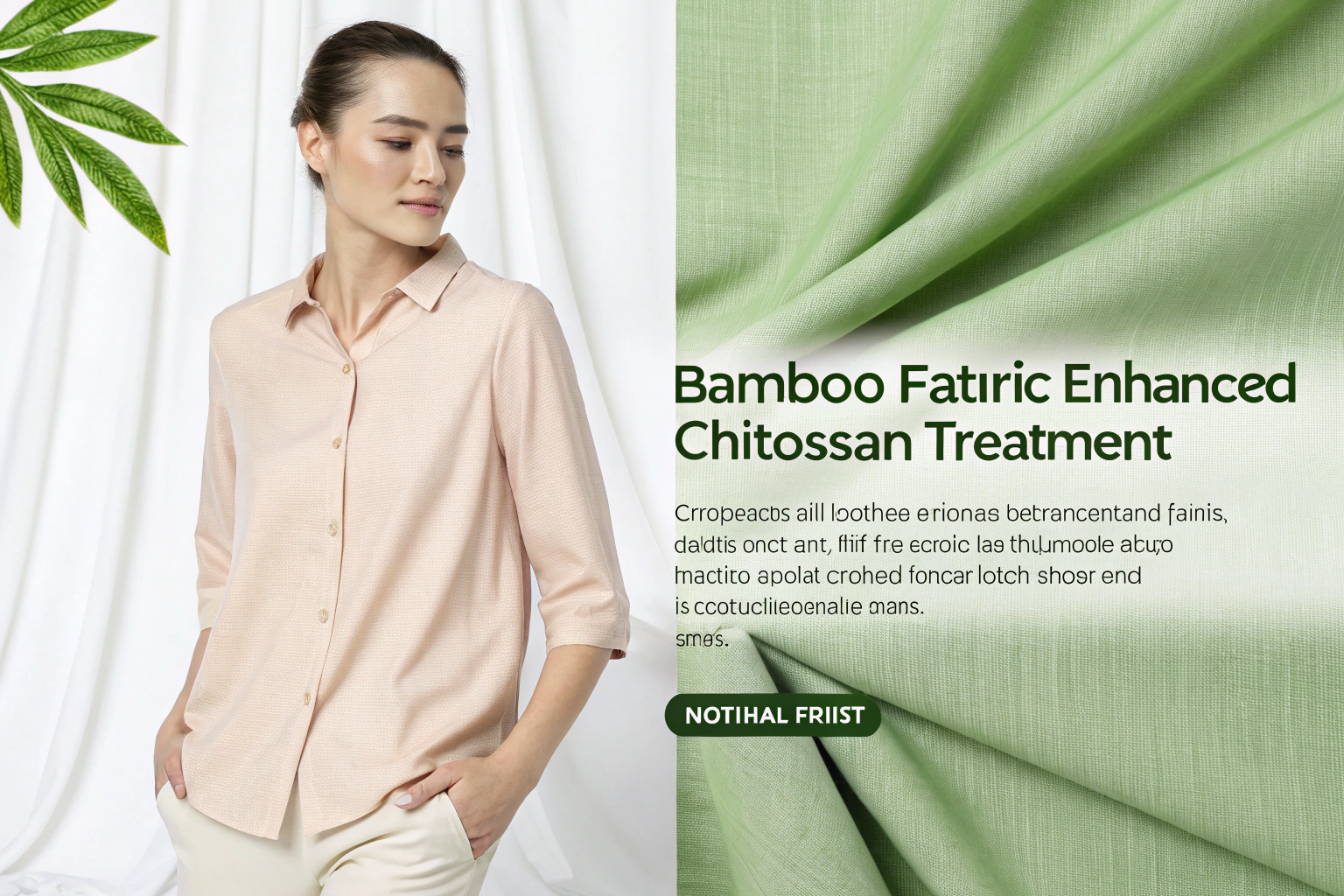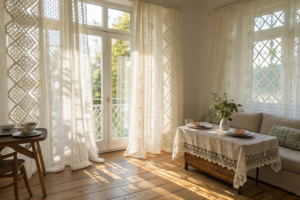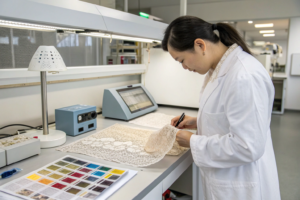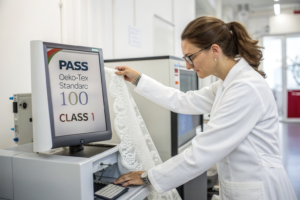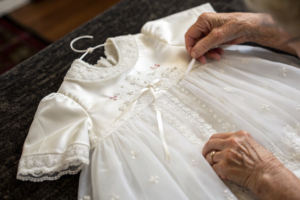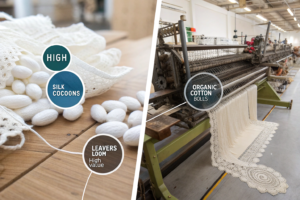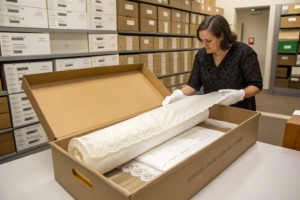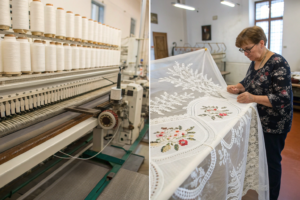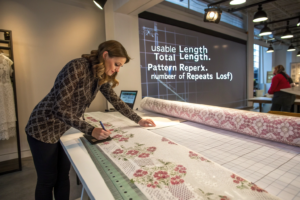Bamboo fabrics are already known for their sustainability, softness, and breathability—but when enhanced with chitosan treatment, they take on powerful antibacterial properties. This natural compound, derived from shrimp or crab shells, binds seamlessly with bamboo viscose to prevent odor, suppress microbial growth, and offer long-lasting freshness.
You can source antibacterial chitosan-treated bamboo fabric from specialized textile mills in China and Southeast Asia that focus on eco-finishes, with typical MOQs starting at 300 meters and OEKO-TEX or GOTS certifications.
This article helps you navigate the sourcing journey—from technical specifications and supplier validation to MOQ insights and certification requirements.
What Is Chitosan-Treated Bamboo Fabric?
Chitosan is a naturally occurring polymer extracted from the shells of crustaceans. When applied to bamboo fabric through padding or coating processes, it creates a semi-permanent antimicrobial layer.
The result is bamboo fabric that resists bacterial growth, minimizes odor buildup, and supports sensitive skin—making it ideal for underwear, kidswear, hospital garments, and yoga apparel.
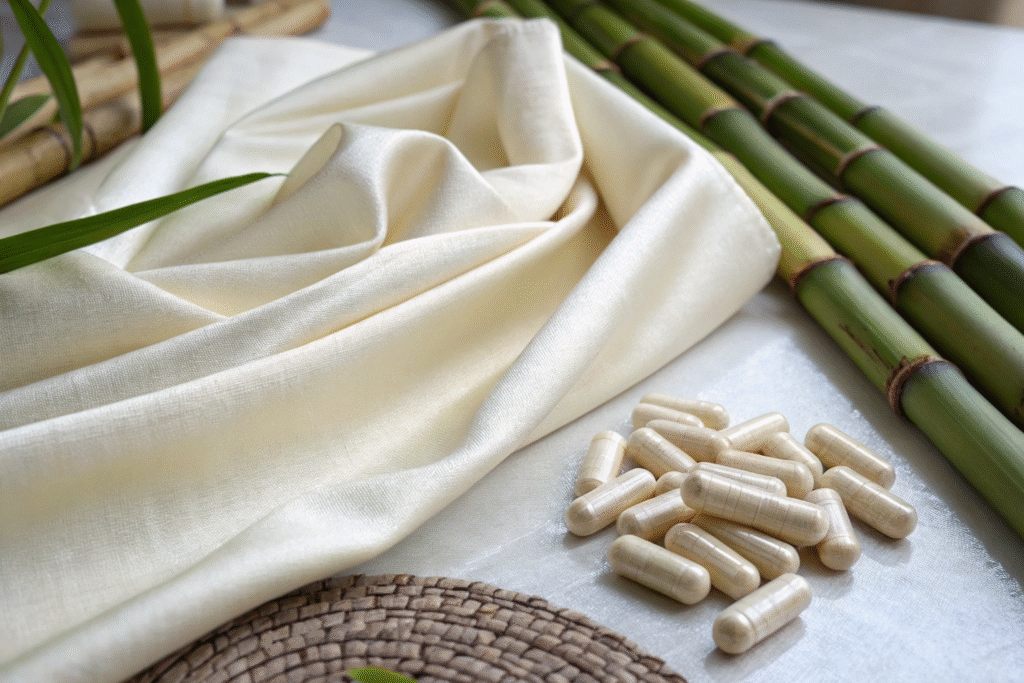
How Does the Antibacterial Process Work?
Chitosan has a positive charge that binds to the negatively charged microbial membranes, disrupting their function and inhibiting growth. This electrostatic interaction gives the fabric its biocidal effect without relying on heavy metals or synthetic chemicals.
Is It Safe and Eco-Friendly?
Yes. Chitosan is biodegradable, non-toxic, and approved by multiple sustainability frameworks. According to OEKO-TEX®, chitosan-based finishes qualify for Standard 100 Class I, meaning they’re safe for baby skin and extended dermal contact.
Who Are the Best Suppliers of Chitosan Bamboo Fabric?
You’ll find the leading suppliers of chitosan-treated bamboo fabric in Zhejiang, Jiangsu, and Guangdong provinces of China—especially in hubs like Keqiao and Foshan. Some Southeast Asian mills in Vietnam and India also specialize in eco-treatment alternatives.
The most reliable mills offer full in-house finishing, antibacterial lab testing, and documentation that supports international compliance.
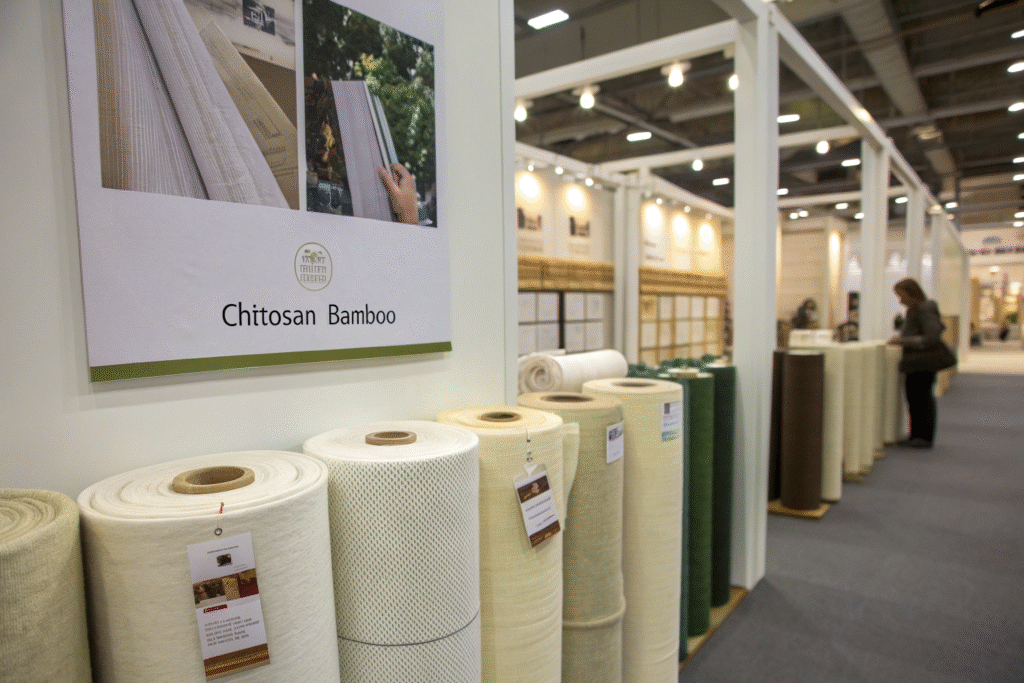
Are There Verified Suppliers on B2B Platforms?
Yes. On Alibaba and Made-in-China, you’ll find suppliers offering GRS, GOTS, and OEKO-TEX-certified chitosan bamboo fabrics, both in woven and knit forms.
Can Fumao Fabric Provide This?
Absolutely. At Fumao Fabric, we collaborate with chitosan formulation labs in Jiangsu to treat our bamboo-viscose knits and jerseys. We support low-MOQ trial orders, custom GSM requests (typically 150–250gsm), and can provide test reports from SGS and Intertek.
What Are the MOQ, Lead Times, and Color Options?
Sourcing chitosan-treated bamboo fabric involves some planning around development cycles and treatment uniformity.
Typical minimums range from 300–500 meters per color, depending on dyeing method and whether the chitosan is applied via padding, spraying, or blending. Lead times span 12–20 days post lab dip approval.
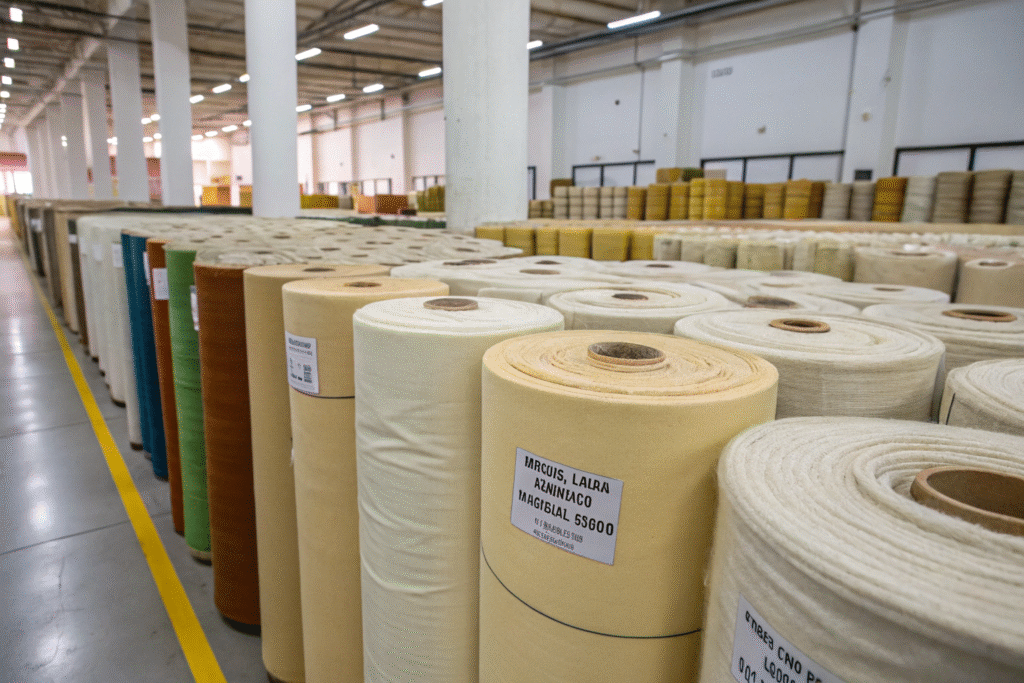
Are Custom Colors Available?
Yes. Most mills will do lab dips for Pantone-matched bamboo shades. However, note that darker colors may slightly diminish the visible effect of chitosan coatings. Light or pastel tones are preferred for showcasing antibacterial fabrics in wellness or organic-themed products.
Can I Order Blends or Yarn-Dyed Options?
Yes. Some suppliers offer blended options (e.g., bamboo-cotton, bamboo-Tencel) with embedded chitosan. Yarn-dyed programs are available but require larger MOQ (usually 1,000 meters). TexFad offers guidance on color retention in sustainable dyes.
What Certifications and Tests Should You Request?
Certifications and testing are key when marketing or exporting antibacterial fabrics—especially to the U.S., EU, and Japan.
Request OEKO-TEX® Standard 100, ISO 20743 (antibacterial efficacy), GOTS if using organic bamboo, and SGS reports confirming the safety and bioactivity of the treatment.
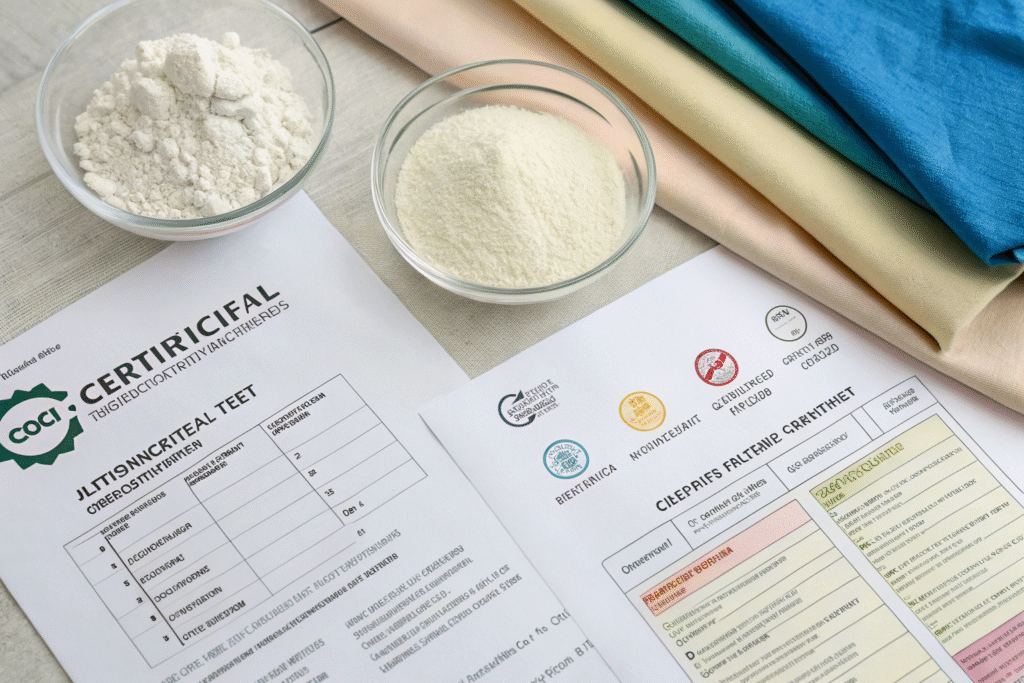
What Does ISO 20743 Measure?
ISO 20743 is the global standard for assessing antibacterial activity on textile products. It measures bacterial reduction percentage after 24-hour incubation. Most chitosan-treated fabrics show >90% reduction against Staphylococcus aureus and E. coli. SGS provides full test details.
Are These Certifications Accepted Globally?
Yes. OEKO-TEX® and ISO are globally accepted. For European buyers, make sure the REACH regulations are met. For U.S. importers, confirm the treatment is non-FDA regulated unless used in medical textiles. Japan’s JIS L 1902 is also compatible with ISO 20743 results.
Conclusion
Chitosan-treated bamboo fabric is the answer for brands seeking natural, breathable, antibacterial materials without resorting to synthetic or metal-based coatings. Whether you're designing baby clothes, athletic wear, or wellness garments, this sustainable textile offers a clear advantage.
At Fumao Fabric, we provide eco-finished bamboo viscose with certified chitosan treatment, full lab support, and customizable MOQ programs. Our integrated team in Keqiao ensures quality control and international logistics tailored to your needs.
To request swatches, MOQ quotes, or test data for antibacterial bamboo-chitosan fabric, contact our Business Director Elaine at: elaine@fumaoclothing.com
